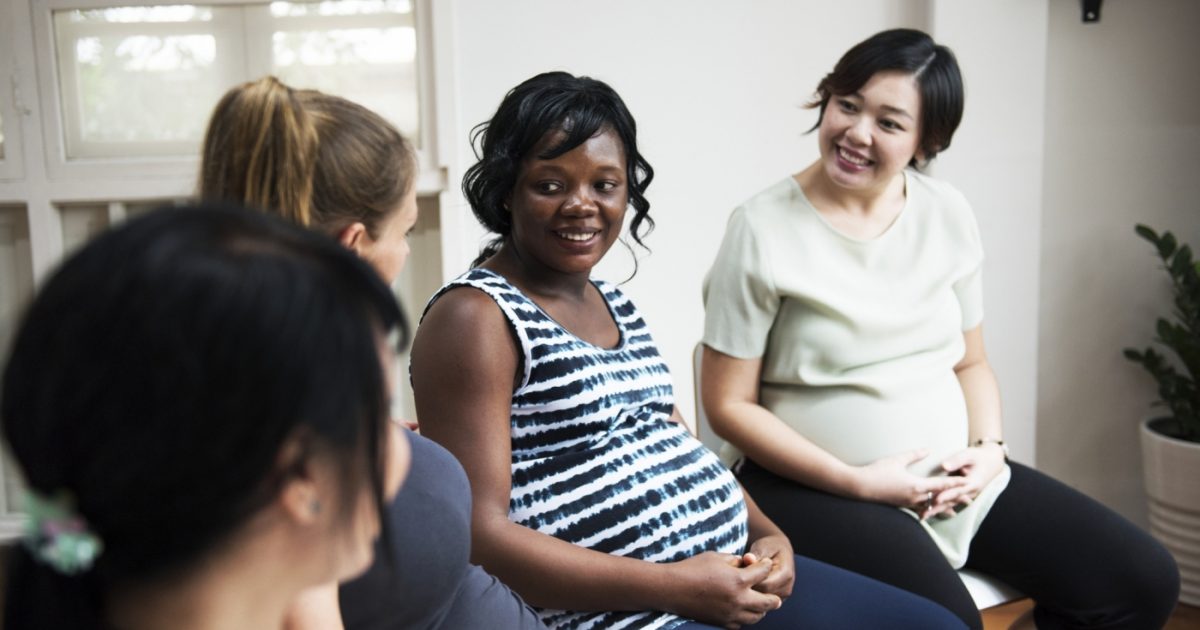Pregnant women are being forced to give birth in prison, affecting their own and their children’s life chances. Janey Starling explains why no woman should be imprisoned in pregnancy.
This is an article from the sixth issue of the New Economics Zine. You can find the full issue here.
Prison will never be the best start to a child’s life. That should be obvious to anyone. Yet, in the past year, 50 women gave birth while spending time in prison. The deaths of two babies in prisons in recent years have turned the public’s attention toward the dangers of jailing pregnant women. However, the problems go far beyond birthing. Imprisoning mothers causes intergenerational harm.
Anita* was pregnant whilst in prison, gave birth to her son whilst held there and then was moved into the prison’s Mother and Baby Unit (MBU), where mothers can stay with their baby for up to 18 months. Whilst Anita was glad she wasn’t separated from her son, she told me: “I don’t think judges quite realise what they’re doing when they send mums to MBUs. Do they not understand they’re still inside prisons?”
Within the unit, prison officers totally disregarded Anita as a mother: “The guards have no respect for you, you’re always on eggshells. When my child was sick, and I wanted to get a doctor’s appointment, a guard told me he didn’t think it was necessary. It was my child, but I couldn’t even make that decision as his mother.If I had been kept in the community, I would have felt more like a mother. But in prison, all of that was stripped from me. It made me doubt my ability as a mother for a long time.”
Anita’s experience is far from unique. Research by Dr Lucy Baldwin on maternal imprisonment documents the profoundly painful impact a lack of acknowledgement of mothers’ role can have on women.
The majority of women enter prison for short sentences, for things like shoplifting. Yet, when it comes to child development, even short sentences can have a lifelong impact. This is something that Anita worries about, given her son’s pending ADHD diagnosis.
“I’m concerned there’s a link between his behaviour and the fact I had him in prison”, she said. “But nobody tells you about this.”
“I’m concerned there’s a link between his behaviour and the fact I had him in prison”, she said. “But nobody tells you about this.”
Rose*, is also worried about this. She was sentenced to prison when she was pregnant and, like Anita, gave birth and lived with her baby on an MBU: “I’m convinced prison has had an adverse effect on my son that will last the rest of his life. He has been struggling with behavioural issues and I’m sure it’s due to the stress I experienced in prison. My son is suffering now because I was put there.”
When Rose was sent to prison, she was also separated from her two other children. One was 13 years old at the time and was consequently bullied at school. “She really struggled with the situation”, Rose said. “She was at such a vulnerable age and it hit her really, really hard.All the stress of all the incidents that have happened to me have affected my children too. It makes me feel so guilty, and angry.”
Article 2 of the UN convention on the rights of the child states that children have ‘the right to not be discriminated against or punished because of anything their parent has done’. Yet courts regularly violate this by sending pregnant women and mothers to prison.
While courts are meant to consider the impact of a parent’s prison sentence on dependent children, this is not consistent practice. The consequences are devastating. Dr Shona Minson has found that the experience of having a mother in prison not only negatively impacts a child’s relationship with their mother, but ‘can affect every area of their lives including their education, health, and well being.’
It is estimated that 17,000 children every year are affected by maternal imprisonment in England and Wales. 95% of these children are forced to leave their homes as their mother’s imprisonment leaves them without an adult to take care of them.
Both Anita and Rose are involved in Level Up’s campaign to end imprisonment for pregnant women, and both believe that mothers swept up into the criminal justice system would be better supported in the community.
Rose would like to see courts “look at the background to why a woman has offended, see these women as mothers, and see what can be done to support them instead.”
Her instincts are backed up by government research. A 2007 review found that poverty, domestic abuse, mental illness and substance use were key drivers of women ending up in prison. It recommended investment in community centres to support women who are at risk of being swept up into crime instead. Specialist charity Women in Prison explains that, by the time a woman enters prison, she has often “been let down long before this point by state services and systems.”
The intergenerational harm prison causes to pregnant women, mothers and children is evident.
With mums holding breastfeeding protests outside the Ministry of Justice, and health experts writing to the Sentencing Council to demand change, the justice system is under pressure to transform its practices.
Until the government invests in alternatives to support women, prisons will continue to inflict preventable trauma on mothers and their children. As Anita concluded: “What good did it do, putting me in jail? Apart from messing up my mental health, leaving me to deal with guilt for the rest of my life, and causing my son to suffer too.”
*Names have been changed to protect identities.
Janey Starling is an award-winning feminist activist and co-director of Level Up, a UK-based gender justice campaign group calling for an end to the imprisonment of pregnant women.
Image: iStock


